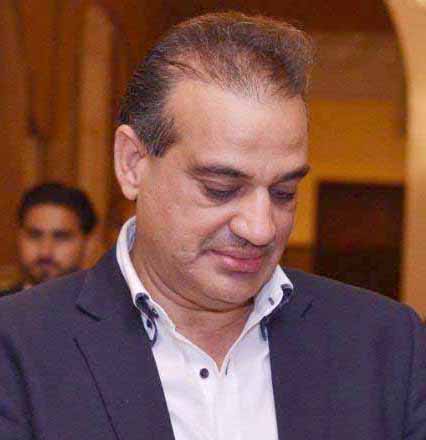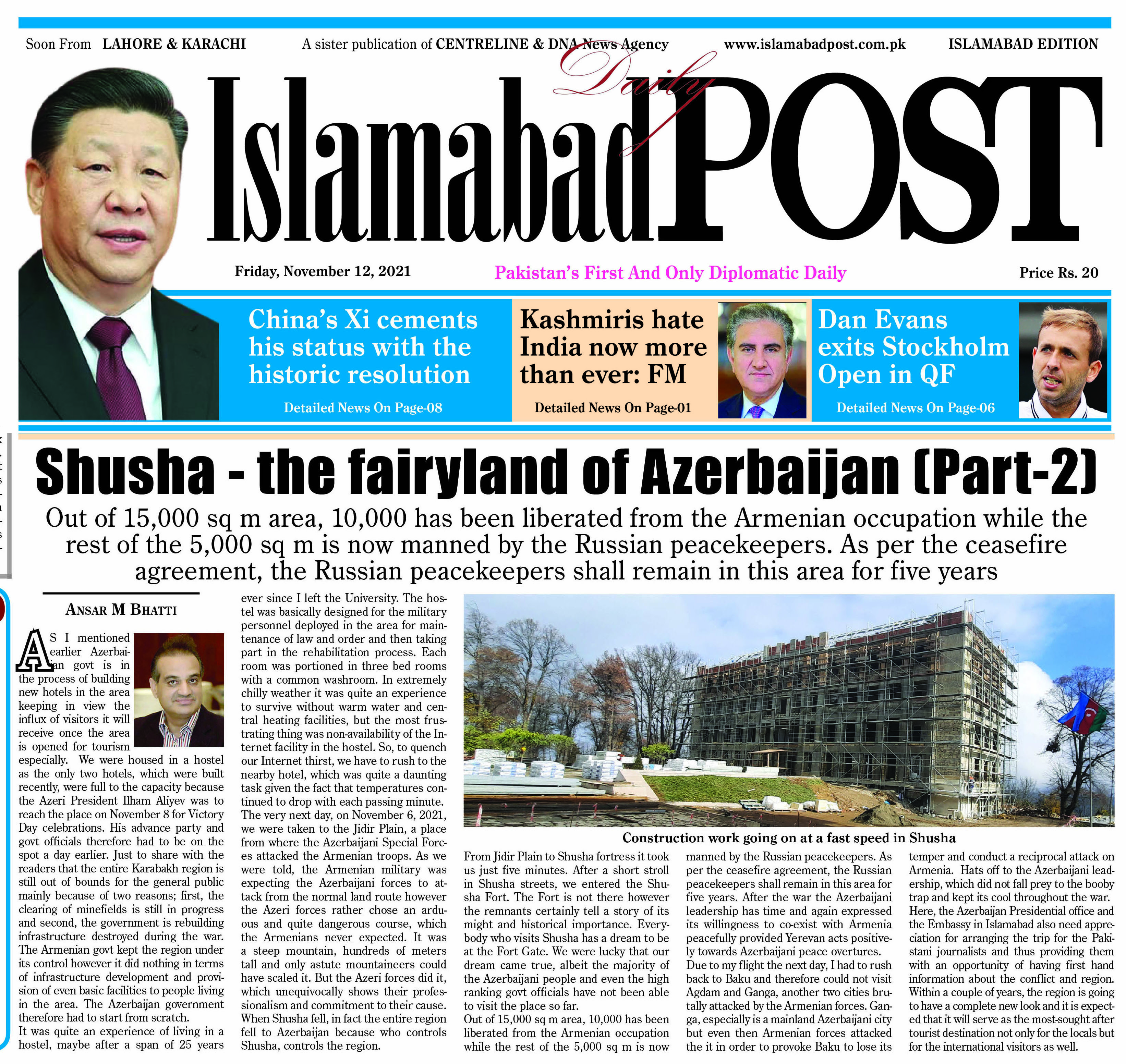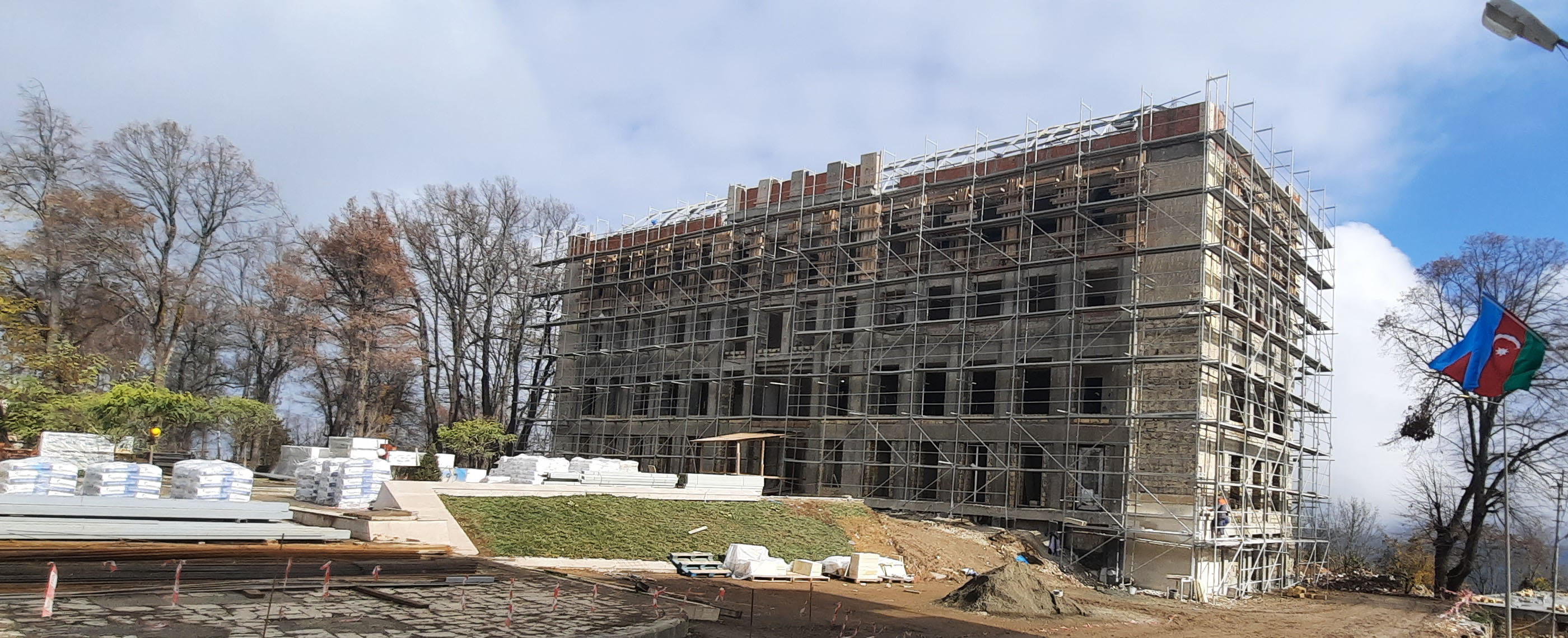Shusha – the fairyland of Azerbaijan (Part-2)
Out of 15,000 sq m area, 10,000 has been liberated from the Armenian occupation while the rest of the 5,000 sq m is now manned by the Russian peacekeepers. As per the ceasefire agreement, the Russian peacekeepers shall remain in this area for five years
Ansar M Bhatti

As I mentioned earlier Azerbaijan govt is in the process of building new hotels in the area keeping in view the influx of visitors it will receive once the area is opened for tourism especially. We were housed in a hostel as the only two hotels, which were built recently, were full to the capacity because the Azeri President Ilham Aliyev was to reach the place on November 8 for Victory Day celebrations. His advance party and govt officials therefore had to be on the spot a day earlier. Just to share with the readers that the entire Karabakh region is still out of bounds for the general public mainly because of two reasons; first, the clearing of minefields is still in progress and second, the government is rebuilding infrastructure destroyed during 30 years of Armenian occupation. The Armenian govt kept the region under its control however it did nothing in terms of infrastructure development and provision of even basic facilities to people living in the area. The Azerbaijan government therefore had to start from scratch.
It was quite an experience of living in a hostel, maybe after a span of 25 years ever since I left the University. The hostel was basically designed for the military personnel deployed in the area for maintenance of law and order and then taking part in the rehabilitation process. Each room was portioned in three bed rooms with a common washroom. In extremely chilly weather it was quite an experience to survive without warm water and central heating facilities, but the most frustrating thing was non-availability of the Internet facility in the hostel. So, to quench our Internet thirst, we have to rush to the nearby hotel, which was quite a daunting task given the fact that temperatures continued to drop with each passing minute.
The very next day, on November 6, 2021, we were taken to the Jidir Plain, a place from where the Azerbaijani Special Forces attacked the Armenian troops. As we were told, the Armenian military was expecting the Azerbaijani forces to attack from the normal land route however the Azeri forces rather chose an arduous and quite dangerous course, which the Armenians never expected. It was a steep mountain, hundreds of meters tall and only astute mountaineers could have scaled it. But the Azeri forces did it, which unequivocally shows their professionalism and commitment to their cause. When Shusha fell, in fact the entire region fell to Azerbaijan because who controls Shusha, controls the region.
From Jidir Plain to Shusha fortress it took us just five minutes. After a short stroll in Shusha streets, we entered the Shusha Fort. The Fort is not there however the remnants certainly tell a story of its might and historical importance. Everybody who visits Shusha has a dream to be at the Fort Gate. We were lucky that our dream came true, albeit the majority of the Azerbaijani people and even the high ranking govt officials have not been able to visit the place so far.
Out of 15,000 sq m area, 10,000 has been liberated from the Armenian occupation while the rest of the 5,000 sq m is now manned by the Russian peacekeepers. As per the ceasefire agreement, the Russian peacekeepers shall remain in this area for five years. After the war the Azerbaijani leadership has time and again expressed its willingness to co-exist with Armenia peacefully provided Yerevan acts positively towards Azerbaijani peace overtures.
Due to my flight the next day, I had to rush back to Baku and therefore could not visit Agdam and Ganga, another two cities brutally attacked by the Armenian forces. Ganga, especially is a mainland Azerbaijani city but even then Armenian forces attacked the it in order to provoke Baku to lose its temper and conduct a reciprocal attack on Armenia. Hats off to the Azerbaijani leadership, which did not fall prey to the booby trap and kept its cool throughout the war.
Here, the Azerbaijan Presidential office and the Embassy in Islamabad also need appreciation for arranging the trip for the Pakistani journalists and thus providing them with an opportunity of having first hand information about the conflict and region. Within a couple of years, the region is going to have a complete new look and it is expected that it will serve as the most-sought after tourist destination not only for the locals but for the international visitors as well.


















